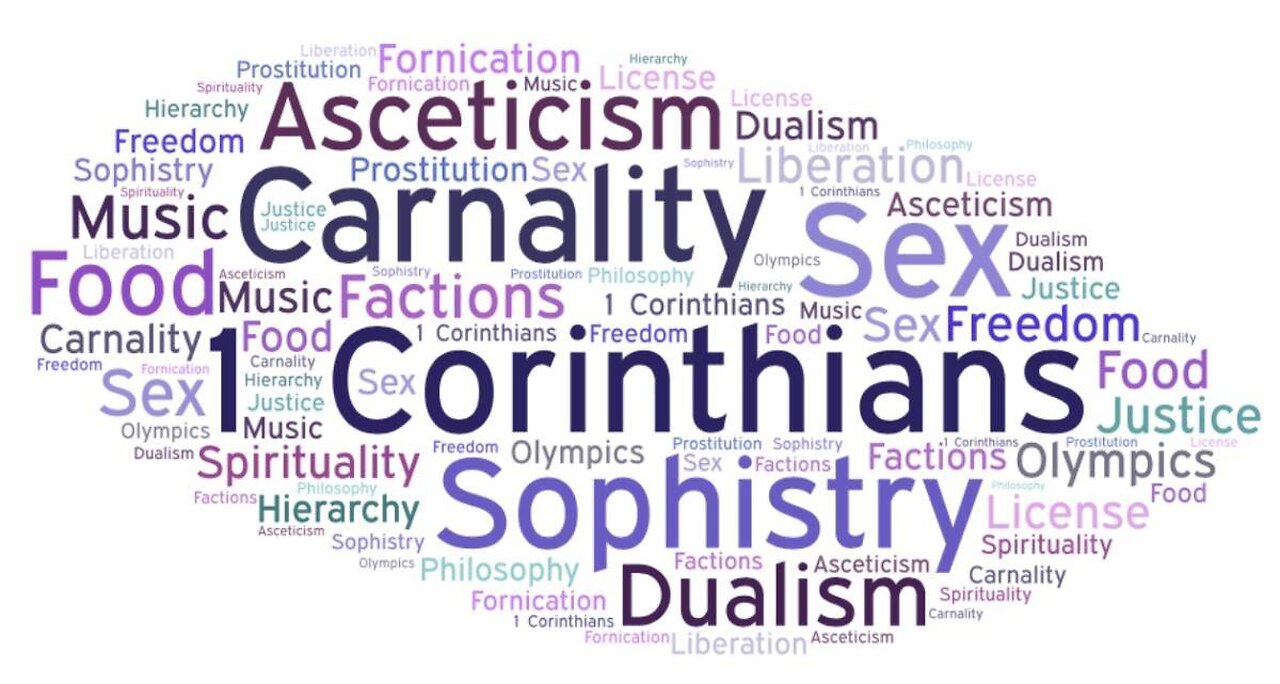Premium Only Content

1 Corinthians 35_1 Corinthians 15:1-11 The Gospel that Saves
SBC Family,
If you have questions about the gospel or the difference in modern times between the gospel and the saving message or anything at all related, then please be sure and send them to me or speak up tonight so we can cover this vital topic.
One of the great failures concerning the gospel is the failure for people to see that the gospel not only saves us in the sense of getting us to heaven, but it also saves us from the power of sin in our lives in the daily Christian life.
Another failure concerns the essential content of the gospel, and this topic is receiving a lot of press these days. Is it the death, burial, and resurrection we so often hear? Why not include the appearances? Or is it the death only? Is it the death and resurrection only? What is it?
Also, a more advanced question deals with what it is that Christ did that actually saves us? Did His burial save us? Did His resurrection save us? Did His death save us? What exactly is it that saves us? And what do each of these four things do?
1 Cor 15:1-8 is at the center of these discussions. I hope we can have a thorough discussion of the gospel tonight, and especially the significance of the death and the resurrection relative to the burial and appearances.
Mostly people need to slow down and think about texts. I find it amazing how little Christians "think" about what is being said in the Bible. They just read it and say "That's what I believe," or they retort when I say "I believe something else" with a verse that they claim says otherwise. Most of the times they've never thought the verse through. Verses have to be thought about, and that's what you do AFTER you've worked through the original languages. Everyone is not an expert (an expert would be someone who knows the original languages and has developed the skill of using the grammatical-historical-contextual hermeneutic principles in exegesis) and it is impossible to get some of the meanings of the original languages through a translation, even a serious translation. That's because every translation is an interpretation, so when an English reader interprets the Bible they are interpreting an interpretation. I find this the greatest obstacle to communicating the original authors intent. Of course, I've developed my way of overcoming that obstacle in my teaching method. But you may have questions, and that is fine, perfectly normal, expected, so don't hesitate to ask. We are here to learn. I'm more interested in you knowing why you believe what you believe than telling you what to believe.
See the attached handout.
Please pray for my 1 Corinthians commentary. I'm working on the final stages, but there's always a lot of finish work to do.
P. S. I won't be here this next Sunday or Wednesday. Glen Schofield and Bill Proser are filling in on Sunday at 9:30 and 10:45 respectively. No one is filling in next Wednesday. This is my vacation week. I will be back the next Sunday to continue our study of angels.
Love,
Jeremy
Attachment:
https://drive.google.com/file/d/1-YpwSQ6pzOYm3tEBUBddj9t4dIZhTb1f/view?usp=drive_link
-
 1:05:28
1:05:28
Flyover Conservatives
1 day agoUkraine’s Dirty Secret: The Christian Persecution No One Wants to Talk About - Alex Newman | FOC Show
68.2K25 -
 2:00:20
2:00:20
Glenn Greenwald
17 hours agoThe View from Moscow: Key Russian Analyst Aleksandr Dugin on Trump, Ukraine, Russia, and Globalism | SYSTEM UPDATE #414
167K68 -
 1:10:55
1:10:55
Donald Trump Jr.
15 hours agoBREAKING NEWS: My Father Revokes Biden-Maduro Oil License, LIVE with Maria Corina Machado | Triggered Ep.220
227K206 -
 1:25:29
1:25:29
Sarah Westall
13 hours agoX-Files True History, Project Blue Beam, Cabal Faction War w/ Former FBI Agent John DeSouza
99.8K40 -
 7:03:49
7:03:49
Dr Disrespect
20 hours ago🔴LIVE - DR DISRESPECT - NEW PC VS. DELTA FORCE - MAX SETTINGS
185K29 -
 49:04
49:04
Lights, Camera, Barstool
1 day agoIs The Monkey The Worst Movie Of The Year?? + Amazon Gets Bond
85.7K5 -
 24:19
24:19
Adam Carolla
1 day agoDiddy’s Legal Drama Escalates, Smuggler Caught Hiding WHAT? + Philly Eagles & The White House #news
173K22 -
 10:12
10:12
Mike Rowe
2 days agoClint Hill: What A Man. What A Life. | The Way I Heard It with Mike Rowe
149K17 -
 1:31:52
1:31:52
Redacted News
16 hours agoBOMBSHELL! This is war! FBI whistleblowers reveal Epstein files being destroyed? | Redacted News
215K401 -
 48:55
48:55
Candace Show Podcast
16 hours agoSTOP EVERYTHING. They FINALLY Mentioned ME In The Blake Lively Lawsuit! | Candace Ep 152
184K143